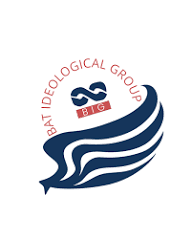Lagos Commences Full Implementation of Ban on Single Use Plastics

The Lagos State Government has commenced full-scale enforcement of its ban on single-use plastics below 40 microns in thickness, effective Tuesday, July 1, 2025.
The decisive move, aimed at combating environmental pollution and advancing sustainable practices, marks a major step in the state’s long-standing environmental reform agenda.
Targeted items include Styrofoam food packs, plastic straws, lightweight nylon bags, disposable cups, and plastic cutlery—products identified as major contributors to drainage blockages and urban waste across the state.
Speaking during a press briefing in Lagos, the Commissioner for the Environment and Water Resources, Tokunbo Wahab, said the government had given businesses a six-month grace period, which expired on June 30.
He made it clear that there would be no extension or compromise.
“We gave a six-month grace period, which ended on June 30. Some assumed enforcement would be postponed due to pressure. That will not happen,” Wahab stated.
He warned that any business found storing, selling, or distributing the banned plastic items would be sealed immediately, and those responsible would face legal penalties in line with Lagos’ environmental regulations.
“Let me be clear, any store, shop, or market caught storing or dealing in single-use plastics below 40 microns will be sealed, and those responsible will face legal consequences under Lagos environmental laws,” he said.
Wahab explained that the ban is in the public interest, designed to safeguard public health and preserve the environment from the long-term hazards of plastic waste. He reiterated that the state is fully committed to implementing policies that promote sustainability and resilience.
Clarifying the scope of the policy, Wahab emphasized that the ban applies only to four key categories of non-biodegradable single-use plastics. He stressed that not all plastic products are affected, and there is no blanket ban.
The commissioner also addressed concerns about the potential economic impact of the ban. Responding to fears of job losses in the manufacturing and distribution sectors, he assured stakeholders that the policy will generate new employment opportunities in the eco-friendly alternatives industry.
“It’s simple, no jobs will be lost. On the contrary, more employment will be generated as industries shift to eco-friendly alternatives,” Wahab said.
He added that the transportation of the banned items to other states where such restrictions are not in place is still permitted, provided the items are not sold or distributed within Lagos.
With this move, Lagos State joins more than 70 countries and major global cities—including Rwanda, Kenya, and several states in India—that have adopted similar bans on single-use plastics since Bangladesh became the first country to take such action in 2002.
Environmental groups and public health advocates have largely praised the state government’s action, viewing it as a crucial step toward building a cleaner, safer, and more sustainable Lagos.









